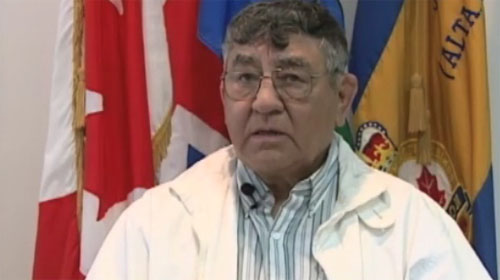Aboriginal Treatment
Heroes Remember
Aboriginal Treatment
Transcript
Description
Mr. Sinclair thinks back to the fair treatment he received as an Aboriginal serving in the Canadian Army during the Second World War.
Samuel John Sinclair
Samuel John Sinclair, an aboriginal Veteran of the Second World War, was born on November 22, 1926 in Lesser Slave Lake, Alberta. His father was a trapper and a mixed farmer as well as a good hunter. Mr. Sinclair had 12 brothers and sisters. Before being sent to school he spoke only Cree, which made his early education quite challenging. He worked hard, learned to speak English and eventually did quite well at school. He stayed in school until Grade 10.
He joined the army underage at 15 without permission from his parents. He was big for his age and told everyone he was 18. He was stationed in Wainwright, Alberta where his first job involved being a dishwasher. At the age of 17 when the Canadian army needed men for the invasion of Europe, he was shipped overseas as one of the reinforcements after D-day.
Meta Data
- Medium:
- Video
- Owner:
- Veterans Affairs Canada
- Duration:
- 03:22
- Person Interviewed:
- Samuel John Sinclair
- War, Conflict or Mission:
- Second World War
- Branch:
- Army
Related Videos
- Date modified:




